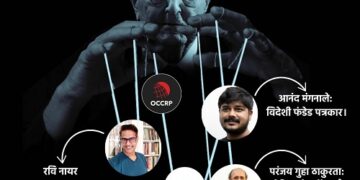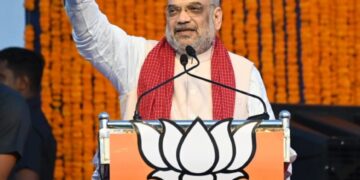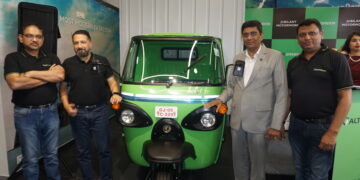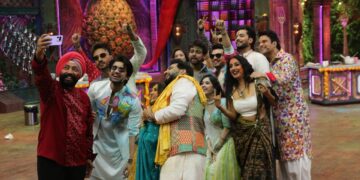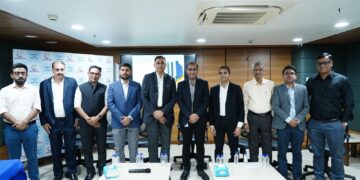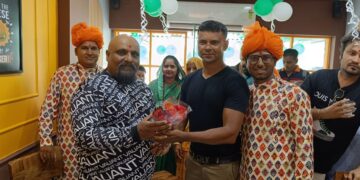 Zee TV’s newest primetime drama, Ganga Mai Ki Betiyan, has already struck a chord with viewers for its poignant portrayal of a mother’s unyielding spirit and the deep bond she shares with her three daughters. In this conversation, Sheizaan opens up about embodying the layered character of Siddhu, his personal connection to the show’s theme, and how the story’s humanity is bound to resonate with audiences.
Zee TV’s newest primetime drama, Ganga Mai Ki Betiyan, has already struck a chord with viewers for its poignant portrayal of a mother’s unyielding spirit and the deep bond she shares with her three daughters. In this conversation, Sheizaan opens up about embodying the layered character of Siddhu, his personal connection to the show’s theme, and how the story’s humanity is bound to resonate with audiences.
Q1. Ganga Mai Ki Betiyan highlights themes of resilience, dignity, and family. How do these wider themes resonate with you personally?
Ganga Mai Ki Betiyan is not a show that just tells a story, but I feel like the concept mirrors real life. Resilience, dignity, and family relationships are not abstract ideas, but we see them around us every day. The values and bond we share with our loved ones give us the courage to dream, to fight, and to never give up. What makes this show truly special to me is how it celebrates these universal values through the journey of a mother and her daughters. It reflects the quiet strength that women often carry in real life, and it reminds me of the many women I have seen, be it in my family, among friends, or even strangers, who embody resilience every single day. It inspires me to stay rooted in these values and reminds me why stories like Ganga Mai Ki Betiyan are so important to tell.
Q The show is set against the vibrant backdrop of Varanasi, a city rich in culture and spirituality. How does this setting add to the authenticity and emotional depth of the narrative?
A. Varanasi isn’t just the backdrop of our show, it’s almost a character in itself. Known as one of the oldest living cities in the world, it carries with it centuries of tradition, resilience, and spirituality. The lanes, the ghats, and the river embody both struggle and renewal, which mirror Ganga Mai’s own journey of rising above abandonment and rebuilding her life with quiet strength. Setting the story in Varanasi brings authenticity to the narrative because the city naturally reflects the cultural nuances, the social realities, and the everyday challenges that women like Ganga Mai face. At the same time, its spiritual energy adds emotional depth, reminding us that no matter how harsh life’s trials may be, hope, dignity, and resilience can carry us forward.
Q Siddhu is described as a rowdy yet deeply emotional man whose world revolves around his mother. What excited you the most about portraying this character?
A. For me, Siddhu is unlike anyone I’ve played before. On the surface, he looks rough, intimidating, and almost unapproachable, but when you peel back the layers, you see a man who lives and breathes for his mother’s happiness. That combination of toughness and innocence is what drew me in instantly. I believe the audience will enjoy discovering the softer side of a man who is otherwise feared by everyone around him. It’s this contrast that makes Siddhu both relatable and unpredictable, and as an actor, those are the characters you dream of bringing alive.
Q. Siddhu is a complex character, so what preparation went into getting his body language, dialect, and emotional depth right for the role?
A. I knew that Siddhu’s personality had to feel authentic to Banaras, not like a caricature. So, I worked closely with the creative team on his body language, the way he stands, walks, and even uses silence to intimidate. For the dialect, I observed locals and tried to pick up their tone and rhythm of speech because Banarasi has its own unique flavour. Most importantly, I wanted his emotional depth to shine through. He may not be highly educated, but he is deeply sensitive, guided by empathy, and that needed to come across. I spent a lot of time thinking about his relationship with his mother and how that emotional bond drives everything he does. That foundation helped me stay grounded in Siddhu’s truth.
Q. The show touches upon themes of abandonment, patriarchy, and societal judgement. Do you think Indian TV sometimes risks becoming too message-heavy when handling such sensitive topics, and how does Ganga Mai Ki Betiyan strike the right balance?
A. It’s true that when you deal with powerful themes, there’s always a risk of slipping into being too heavy or too message driven. But what I love about Ganga Mai Ki Betiyan is that it never feels like heavy-handed messaging. The story is rooted in emotions, in everyday struggles, in moments that people watching at home can see themselves in. The message emerges naturally from the characters’ experiences instead of being imposed. I think that’s what will strike a chord; audiences will connect to the humanity and heart in the story, and the themes will feel like a natural part of that, not something separate or overly moralistic.


